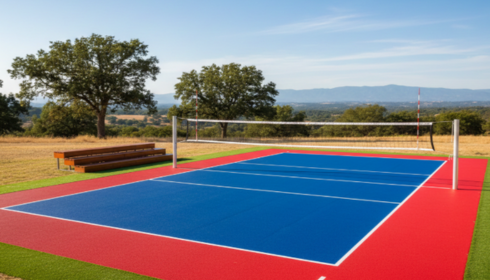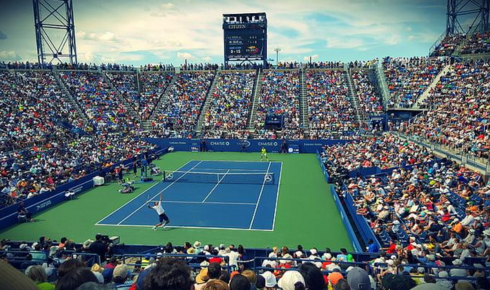When it comes to designing and constructing a basketball court, one of the most crucial aspects to consider is the flooring. The type of basketball court materials you choose can greatly affect the game’s performance, safety, and durability. Whether you’re building an indoor or outdoor court, selecting the right basketball court surfacing is essential for ensuring a professional-quality playing experience. In this guide, we’ll explore the various basketball court flooring options available, the importance of choosing the right materials, and how to select a reliable basketball court manufacturer to bring your vision to life.
Understanding Basketball Court Materials
Basketball court materials encompass the surface layer that players interact with during a game. The material affects everything from ball bounce to player traction, making it essential to choose wisely. There are several types of basketball court flooring, each offering distinct benefits for different needs and budgets. The right choice will depend on the intended use, location (indoor or outdoor), and how often the court will be used.
Types of Basketball Court Flooring
- Wooden Flooring
Wooden floors, particularly maple, are often associated with professional indoor basketball courts. This material provides an excellent bounce for the ball and offers the smooth, even surface that athletes expect. The resilience of wooden flooring helps protect players’ joints, making it a popular choice for schools, gyms, and arenas. However, wooden floors require regular maintenance to prevent damage from moisture, scratches, and wear over time. - Synthetic Flooring (Acrylic)
Synthetic acrylic flooring is a popular and cost-effective option for both indoor and outdoor basketball courts. Acrylic surfaces are known for their durability and resistance to weather conditions, making them an ideal choice for outdoor courts. These floors are also easier to maintain than wooden surfaces and are often preferred for their ability to provide consistent bounce and player traction. The acrylic material is also customizable in terms of color and design, allowing for vibrant court markings and logos.
- Rubber Flooring
Rubber flooring is another durable option for basketball courts, particularly in areas with high foot traffic. It provides excellent shock absorption, which is beneficial for player comfort and safety. Rubber flooring is often used in gyms, recreational centers, and multi-purpose sports facilities. While it is not as common in professional basketball courts, it offers superior impact resistance and is easy to install and maintain.
- Vinyl Flooring
Vinyl flooring is an affordable and versatile option that offers durability and comfort for recreational basketball courts. It can handle high-impact play and is less expensive than wood or rubber flooring. Vinyl is available in various designs, including wood-like finishes, and is easy to clean and maintain. While it may not provide the same premium feel as wood, vinyl is often a preferred option for budget-conscious projects.
Why Basketball Court Surfacing Matters
The basketball court surfacing you choose has a direct impact on the game. From bounce consistency to safety, the court material affects various aspects of play:
- Ball Bounce: A good basketball court surface will provide a consistent bounce that helps players execute passes, shots, and dribbles more effectively. Wooden floors tend to offer the most natural ball bounce, but synthetic materials like acrylic can also provide excellent bounce consistency.
- Player Traction: A slippery court can lead to accidents, so traction is crucial for player safety. Materials like wood and acrylic offer the right amount of grip to ensure that players can make quick turns and stops without risking injury.
- Durability: Whether you’re building an indoor or outdoor court, durability is a key consideration. Outdoor courts need to withstand various weather conditions, while indoor courts should endure heavy foot traffic. Acrylic and rubber flooring are particularly suited to outdoor environments as they resist weathering and wear.
- Maintenance: Keeping the court in good condition requires periodic maintenance, especially if it’s used frequently. Wooden floors require refinishing and regular cleaning to maintain their quality, while synthetic and vinyl floors are easier to clean and maintain over time.
Choosing the Right Basketball Court Manufacturer
When it comes to selecting basketball court materials, working with a reliable basketball court manufacturer is critical. A reputable manufacturer will not only offer high-quality materials but will also guide you through the entire process, from selecting the right flooring to installation.
Here are a few tips for choosing the right basketball court manufacturer:
- Expertise and Experience
Look for manufacturers with experience in producing high-quality basketball court materials. An experienced manufacturer will understand the nuances of different flooring options and help you make an informed decision based on your specific needs. - Customization Options
The best manufacturers offer customization options for court designs. Whether you want your court to reflect a professional league look or customize it with logos and team colors, a good manufacturer should provide options to make your vision come to life. - Durability and Quality
The durability of the basketball court flooring is essential for ensuring that it lasts for years. Choose a manufacturer who uses high-quality materials that are designed to withstand heavy use and environmental factors (especially for outdoor courts). - Installation Services
A trusted manufacturer will also offer installation services or provide you with detailed guidance on how to install the court properly. Proper installation is crucial for ensuring the longevity and performance of the court. - Customer Reviews and Reputation
Do some research on the manufacturer’s reputation. Look for customer testimonials and case studies that demonstrate their expertise and quality of work. A reputable manufacturer should have a solid track record and be able to provide references upon request.
Conclusion
Choosing the right basketball court materials is a crucial part of building a high-performance court. The flooring you select affects gameplay, safety, and durability, and it’s important to choose a material that meets your needs and budget. Whether you opt for wood, synthetic acrylic, rubber, or vinyl, make sure to work with a trusted basketball court manufacturer to ensure the highest quality results. With the right materials and proper installation, your basketball court will provide an excellent playing surface for years to come.




